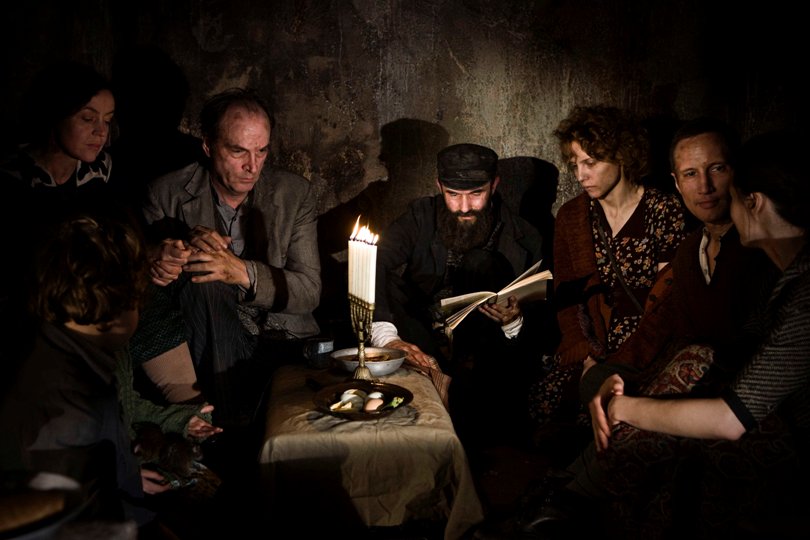The world has heard of Schindler’s Jews, who were saved from the gas ovens by the patronage of an enlightened German industrialist. Socha’s Jews are not quite so celebrated. There are number of reasons for that. For a start, many fewer Jews were saved in this narrative, and their story has not found its own Thomas Kenneally - nor until now its Steven Spielberg. But most importantly their saviour would never be mistaken for any sort of moral pin-up, being a burglar and black marketer who stashed his booty in the sewers of Lvov.
A non-fiction book called In the Sewers of Lvov tells of Socha's Jews and their remarkable survival, but it was out of print when rookie scriptwriter David F Shannon bought Amazon’s last copy. The film which has finally brought their story to light is the work of Agnieszka Holland. The émigrée Polish director's grandparents were killed in the Warsaw ghetto and much of her early work - Angry Harvest (1985) and Europa Europa (1991) - focuses on the plight of Jews in the war. The first thing to say is that Holland is nothing if not true to the film’s title. When in 1943 the Lvov ghetto was cleared by the SS and their Ukrainian henchmen, briefly and brutally re-enacted here, a group of Jews escaped through the hole in the floor of a bar down into the city’s network of sewers. Thus much of In Darkness takes place in sepulchral half light, with only torches and candles to see by. Holland and her DoP Jola Dylewska make no concessions, so that the film’s forays up into the city bring, literally, light relief. When Socha (Robert Więckiewicz, superb) takes pity on a sickly child and thrusts her restoratively through a manhold for a dose of the real world, we are encouraged to feel something of her wonder.

Holland flirts often and heartstoppingly with dread possibilities
But the Jews are hardly idealised either. Friction is provoked by sexual jealousies – the sewers where “everything smells of shit” and rats are legion does not put a stop to ceaseless desperate frotting – but also social distinctions. Class tension simmers between a rich German-speaking Mr Chiger (Herbert Knaup) who funds the group’s needs and the working-class Yiddish-speaking Mundek (Benno Fürmann), its slightly too chiselled natural leader.
And then there is a marital divide between Socha and his comely blonde wife (Kinga Preis), who is appalled at the danger he is putting themselves and their daughter in. But gradually as the invading thugs – personified by an old Ukrainian pal now working in uniform for the Nazi project - make life hell for everyone, Socha comes to feel almost trapped into personal responsibility for the stowaways in his care – even for Mundek whose distrust lingers.
The film takes its time – well north of two hours - to reach its cathartic and extremely moving climax. On the way Holland flirts often and heartstoppingly with dread possibilities, both for Socha and for the small group of Jews braving flood and famine, discovery and death and even, on the way, a pregnancy. Possibly to escape narrative suffocation, the story follows Mundek into a nearby workers’ camp – they have to crawl through the gates - where the commandant has a Jewish band playing Strauss waltz as he shoots the enfeebled. It’s grimly realised – Holland doesn't overdo the horrors, but doesn't stint either - but in the context of the narrative a slightly false trail. In Darkness has the odd such structural weakness imposed on it by claustrophobia. Perhaps these cost it the Academy Award for Best Foreign Film (which went to Iran’s A Separation). But it is nonetheless a powerful and honest voyage into the bowels of hell.
Watch the trailer to In Darkness















Add comment